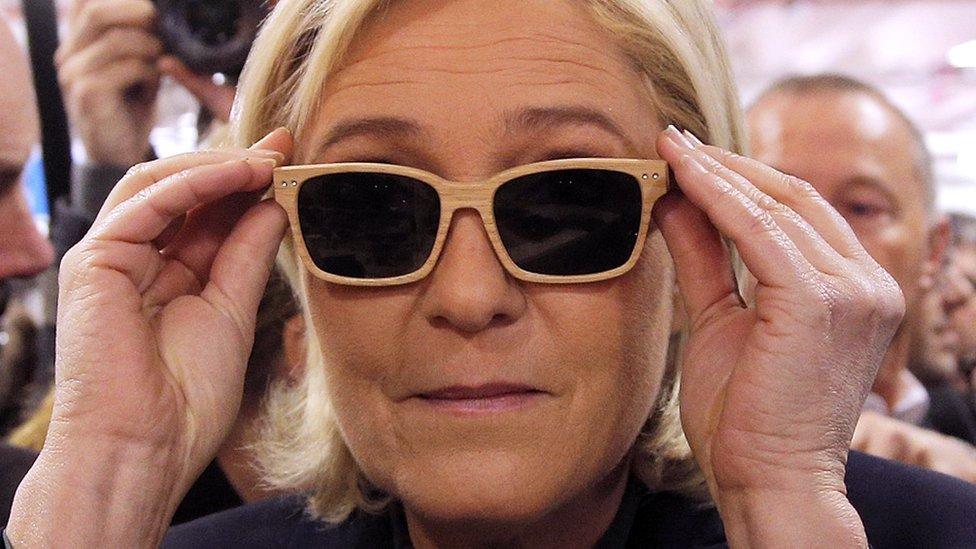France presidential race: Conservative rivals get personal
- Published
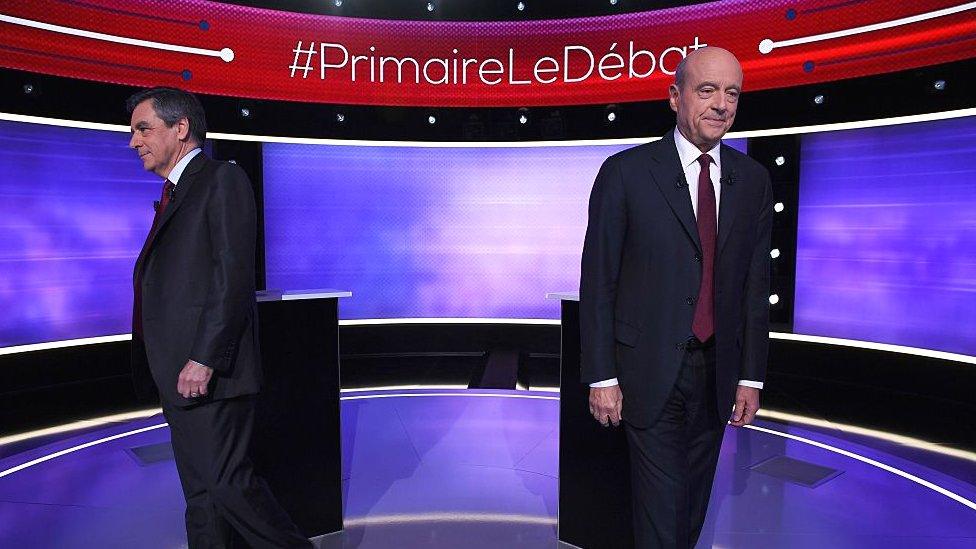
The candidates share much common ground, but the contest has highlighted their differences
The two rivals battling to be the presidential candidate of France's centre-right Republicans Party have jousted in a TV debate.
The second and decisive round of voting is on Sunday, in the unprecedented party primary.
Francois Fillon and Alain Juppe, both former prime ministers, are offering centre-right voters differing visions of France. But both want economic reform and a stronger state, and both are from the same party, so why has the battle suddenly turned so vicious?
Surprisingly one of the tetchiest exchanges in this final primary debate was over abortion.
'Medieval conservative'
In a country recovering from a recent spate of terror attacks, with 10% unemployment, it's not exactly the most pressing issue for French voters. And neither candidate in Sunday's runoff vote has proposed tinkering with the rights of French women to terminate their pregnancies.
So the fact that it was this topic that drew the most personal exchanges says a lot about how this campaign has been fought in the past week.
Mr Fillon, frontrunner to win the nomination, accused his rival of portraying him as "a medieval conservative" with anti-abortion views.
Mr Juppe said that he considered abortion a fundamental right.
Mr Fillon responded that it was "a legal question". "My conscience is my business," he said, "but I won't touch the abortion law, and I think the trial against me is unfair".
"I didn't put you on trial, I asked a question," Mr Juppe replied.
"Well it's a question that feels like a trial," said Mr Fillon.
Months ago, when he was still the favourite to win this primary, Mr Juppe said that he wanted a "clean" race. But there has been a clear change in mood as the candidates head towards the second round of voting.
Juppe v Fillon: Battle of France's conservatives
Press review: France's 'Mr Nobody' Francois Fillon
Fillon under fire over women's rights
The right-wing paper Le Figaro remarked that Mr Juppe had "chosen to get tough" on Mr Fillon, describing his vision as "extremely traditional, all but backward, on the role of women, on the family, on marriage".
"I never would have thought that my friend Alain Juppe would stoop so low!" Mr Fillon responded.
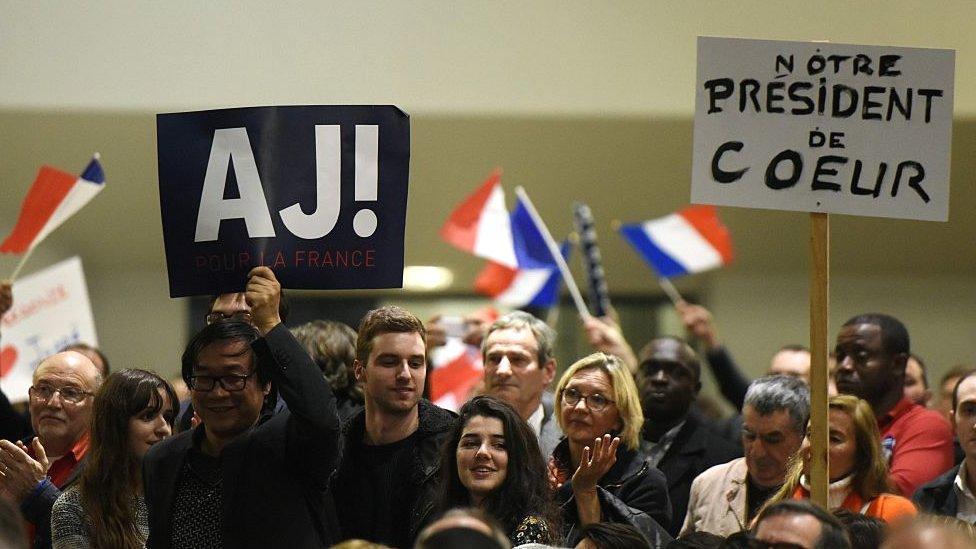
Alain Juppe is desperately trying to claw back ground lost over the past two weeks

Francois Fillon is trying to capitalise on the more radical nature of his policies
Alain Juppe is facing Sunday's runoff as the outsider, after Francois Fillon unexpectedly took 44% of the first round votes, and then picked up the supporters of former President Nicolas Sarkozy, who was knocked out after coming in third.
Role of the left
Pollsters say Mr Juppe now needs to find more than a million votes from somewhere to stand a chance of winning the runoff, and that he has been highlighting Mr Fillon's conservative views on social issues to mobilise left-wing supporters to take part.
Between 9-15% of the first-round voters are thought to have been from the left. It was not enough to make a difference to the result that time, even when many were spurred to action by a desire to block Mr Sarkozy from another run for the presidency.
Mr Juppe has been quick to remind people that his rival spent five years as prime minister to Mr Sarkozy. And Le Figaro says Socialist politicians have been joining in the fight. "Having got rid of its favourite enemy, Nicolas Sarkozy, the left waited less than 24 hours to find a new target in Francois Fillon," it said in an editorial this week.
But will it work any better this time? Some believe the tactic may backfire, and that repeated criticism of Mr Fillon as too hardline may make Mr Juppe appear softer than he would like, in comparison.
Despite the sometimes bitter rhetoric of this last week, much of Thursday night's debate was amicable, with Mr Fillon and Mr Juppe emphasising their shared goals. Both men agree on the need for spending cuts, longer working hours and economic reform, even if they differ on the degree and speed of those changes.
But when it comes to issues of society and French identity, they seem to have two different visions of France, and speak to two different audiences.
Alain Juppe is focusing on the need for unity, inclusivity and a happy national identity; Francois Fillon says the country is angry, fed-up, and hungry for radical change.
- Published7 December 2016
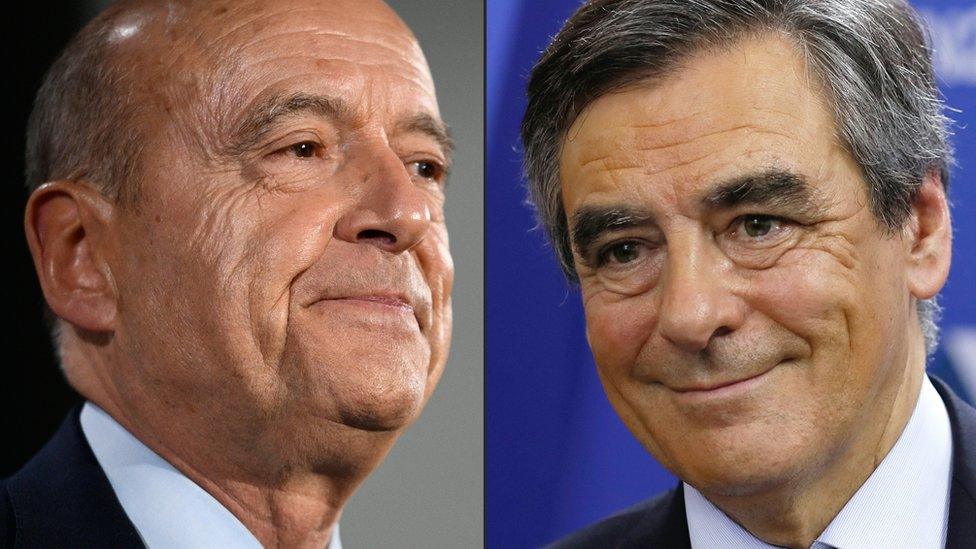
- Published22 November 2016
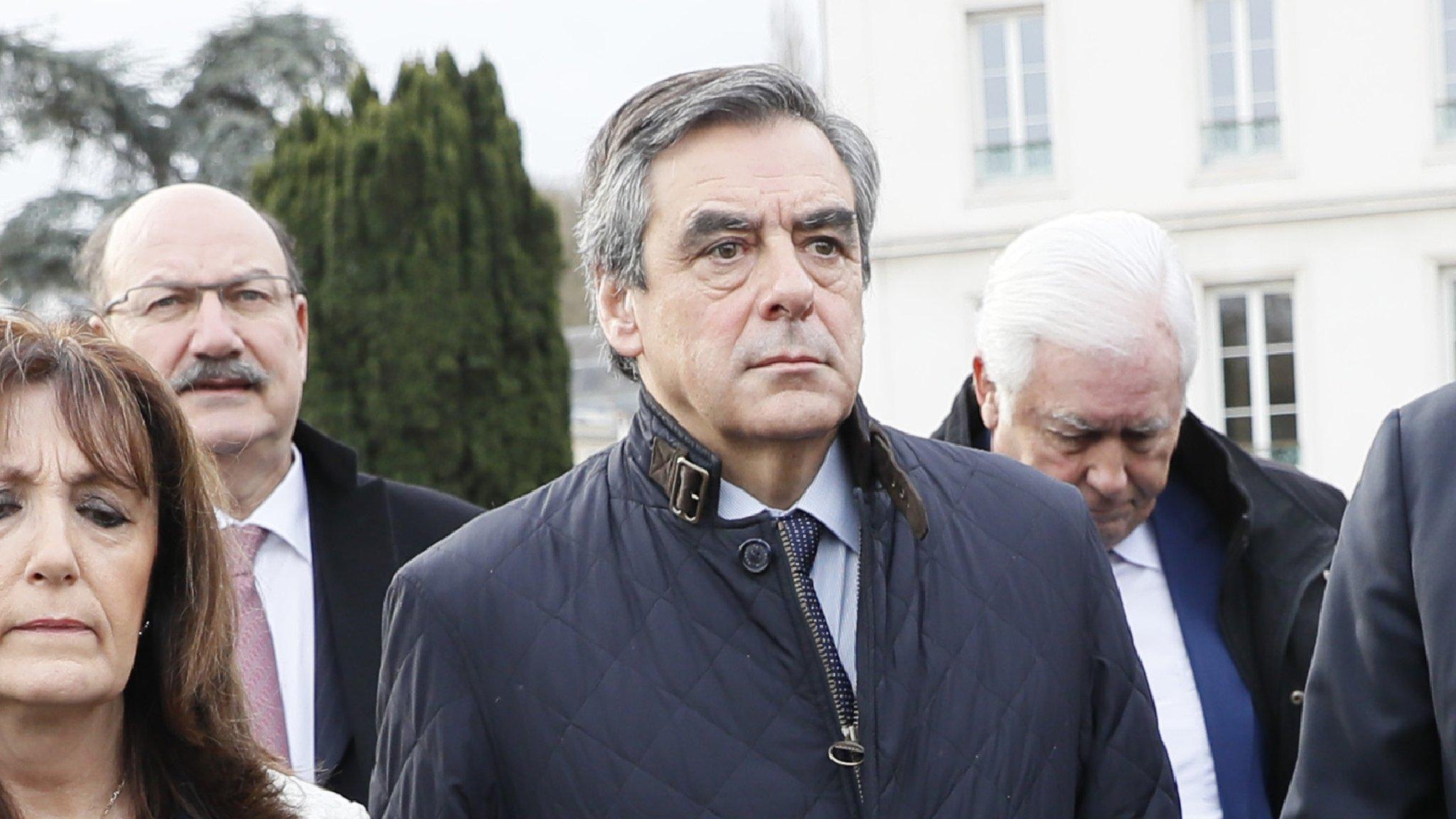
- Published21 November 2016
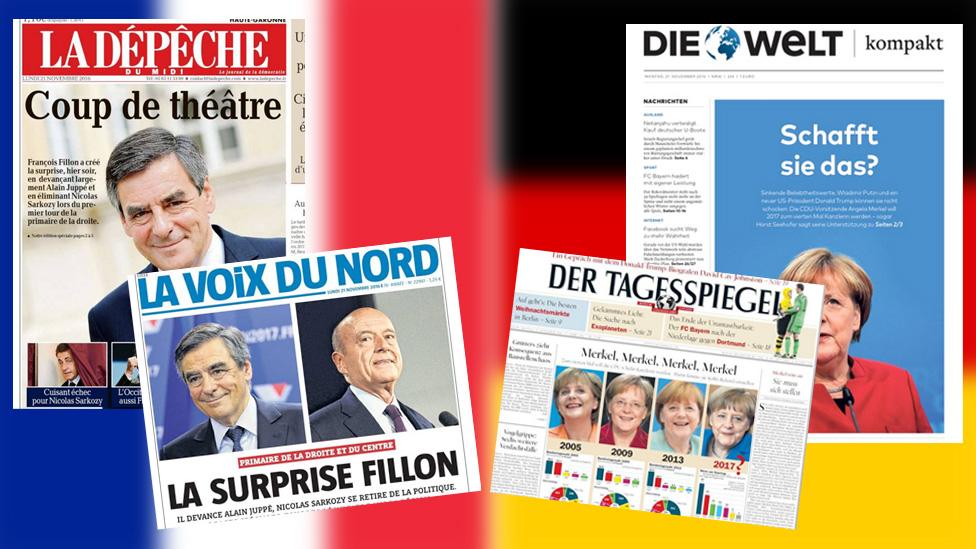
- Published19 November 2016
